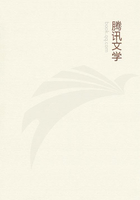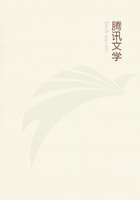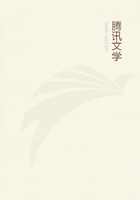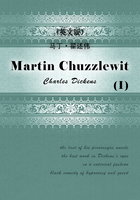This way of looking at himself as an ignoramus in all matters of art, was strengthened by the absence of pretence, which was part of his character.
With regard to questions of taste, as well as to more serious things, he always had the courage of his opinions. I remember, however, an instance that sounds like a contradiction to this: when he was looking at the Turners in Mr. Ruskin's bedroom, he did not confess, as he did afterwards, that he could make out absolutely nothing of what Mr. Ruskin saw in them.
But this little pretence was not for his own sake, but for the sake of courtesy to his host. He was pleased and amused when subsequently Mr. Ruskin brought him some photographs of pictures (I think Vandyke portraits), and courteously seemed to value my father's opinion about them.
Much of his scientific reading was in German, and this was a great labour to him; in reading a book after him, I was often struck at seeing, from the pencil-marks made each day where he left off, how little he could read at a time. He used to call German the "Verdammte," pronounced as if in English.
He was especially indignant with Germans, because he was convinced that they could write simply if they chose, and often praised Dr. F. Hildebrand for writing German which was as clear as French. He sometimes gave a German sentence to a friend, a patriotic German lady, and used to laugh at her if she did not translate it fluently. He himself learnt German simply by hammering away with a dictionary; he would say that his only way was to read a sentence a great many times over, and at last the meaning occurred to him. When he began German long ago, he boasted of the fact (as he used to tell) to Sir J. Hooker, who replied, "Ah, my dear fellow, that's nothing; I've begun it many times."In spite of his want of grammar, he managed to get on wonderfully with German, and the sentences that he failed to make out were generally really difficult ones. He never attempted to speak German correctly, but pronounced the words as though they were English; and this made it not a little difficult to help him, when he read out a German sentence and asked for a translation. He certainly had a bad ear for vocal sounds, so that he found it impossible to perceive small differences in pronunciation.
His wide interest in branches of science that were not specially his own was remarkable. In the biological sciences his doctrines make themselves felt so widely that there was something interesting to him in most departments of it. He read a good deal of many quite special works, and large parts of text books, such as Huxley's 'Invertebrate Anatomy,' or such a book as Balfour's 'Embryology,' where the detail, at any rate, was not specially in his own line. And in the case of elaborate books of the monograph type, though he did not make a study of them, yet he felt the strongest admiration for them.
In the non-biological sciences he felt keen sympathy with work of which he could not really judge. For instance, he used to read nearly the whole of 'Nature,' though so much of it deals with mathematics and physics. I have often heard him say that he got a kind of satisfaction in reading articles which (according to himself) he could not understand. I wish I could reproduce the manner in which he would laugh at himself for it.
It was remarkable, too, how he kept up his interest in subjects at which he had formerly worked. This was strikingly the case with geology. In one of his letters to Mr. Judd he begs him to pay him a visit, saying that since Lyell's death he hardly ever gets a geological talk. His observations, made only a few years before his death, on the upright pebbles in the drift at Southampton, and discussed in a letter to Mr. Geikie, afford another instance. Again, in the letters to Dr. Dohrn, he shows how his interest in barnacles remained alive. I think it was all due to the vitality and persistence of his mind--a quality I have heard him speak of as if he felt that he was strongly gifted in that respect. Not that he used any such phrases as these about himself, but he would say that he had the power of keeping a subject or question more or less before him for a great many years. The extent to which he possessed this power appears when we consider the number of different problems which he solved, and the early period at which some of them began to occupy him.
It was a sure sign that he was not well when he was idle at any times other than his regular resting hours; for, as long as he remained moderately well, there was no break in the regularity of his life. Week-days and Sundays passed by alike, each with their stated intervals of work and rest.
It is almost impossible, except for those who watched his daily life, to realise how essential to his well-being was the regular routine that I have sketched: and with what pain and difficulty anything beyond it was attempted. Any public appearance, even of the most modest kind, was an effort to him. In 1871 he went to the little village church for the wedding of his elder daughter, but he could hardly bear the fatigue of being present through the short service. The same may be said of the few other occasions on which he was present at similar ceremonies.
I remember him many years ago at a christening; a memory which has remained with me, because to us children it seemed an extraordinary and abnormal occurrence. I remember his look most distinctly at his brother Erasmus's funeral, as he stood in the scattering of snow, wrapped in a long black funeral cloak, with a grave look of sad reverie.
When, after an interval of many years, he again attended a meeting of the Linnean Society, it was felt to be, and was in fact, a serious undertaking;one not to be determined on without much sinking of heart, and hardly to be carried into effect without paying a penalty of subsequent suffering. In the same way a breakfast-party at Sir James Paget's, with some of the distinguished visitors to the Medical Congress (1881), was to him a severe exertion.

